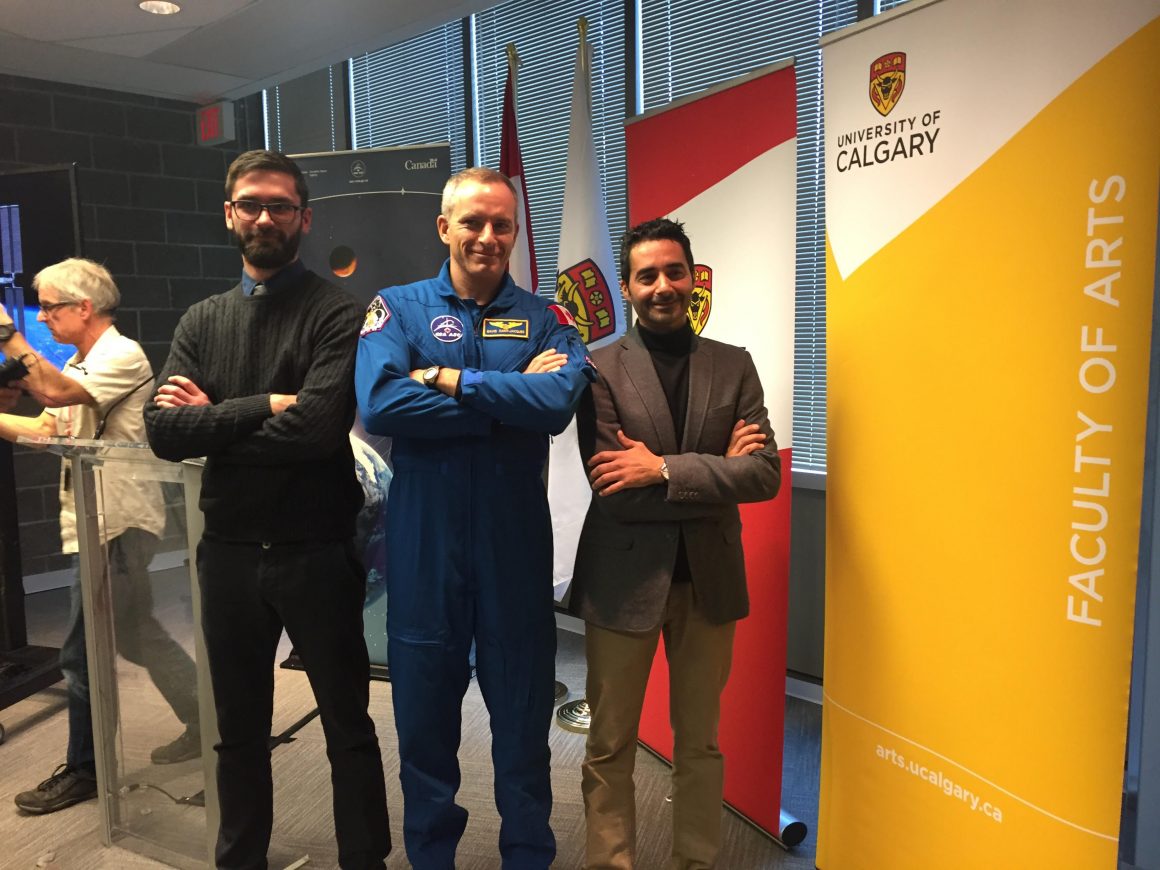
Canadian Space Agency announces partnership with U of C professor
By Josh Harkema, October 24 2016 —
The Canadian Space Agency announced a five-year partnership with a University of Calgary psychology professor to study how long-term exposure to microgravity affects astronauts’ brains.
The CSA will contribute $728,000 towards the research over five years. The funding is part of the federal government’s larger commitment of $379 million to extend Canada’s participation in the International Space Station until 2024.
The partnership was announced on Oct. 29 in the MacHall Conference Centre.
Giuseppe Iaria, an associate professor in the U of C department of psychology, will lead the project. Iaria will study the effects of long-term exposure to microgravity by comparing MRIs of astronauts before and after they spend six months on the ISS.
“This study is interesting because this is a fantastic opportunity to really understand how the brain is reorganizing itself when there is a lack of information important for orientation and navigation,” Iaria said.
Iaria’s research will investigate how astronauts can navigate without their inner ears providing information on their direction of movement and locomotion.
The project will include work from students in Iaria’s lab. Ford Burles, a PhD candidate working with Iaria, said the U of C’s partnership with the CSA will help raise the international profile of the department, potentially attracting new graduate students and undergraduates interested in the field.
“For the student body generally, I don’t think any individual grant will have an effect, but you know I like to think that this kind of raises the profile of our department and hopefully attracts some students because of our research,” he said.
Burles says cognitive neuroscience is not a field that many psychology majors focus on, stating students prefer to study clinical or social psychology. He hopes the project will attract more students to cognitive neuroscience, increasing the demand for courses in the subject and improving the on-site imaging equipment at the U of C.
“I think in a lot of places there’s a lot heavier orientation on the verbal side of psychology or clinical side, and as far as experimental stuff not that many people do spacial things,” Burles said. “Not many people get these unique opportunities to do [these experiments] with participants.”
Correction: A previous version of this article misidentified Ford Burles as Ford Burls and gave inaccuracies on the nature of Iaria’s research. The Gauntlet apologizes to its readers for these errors.
